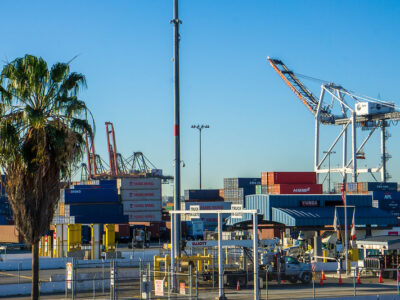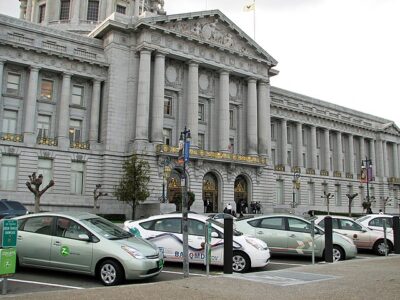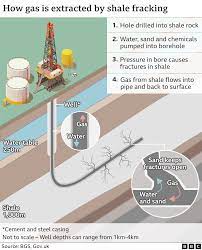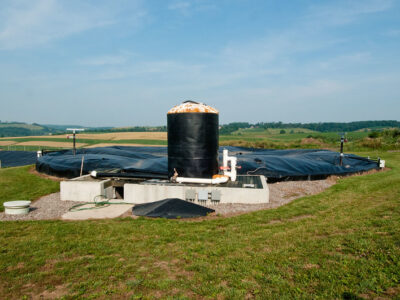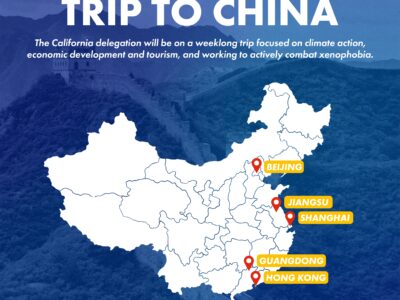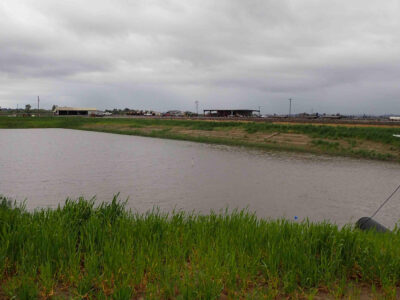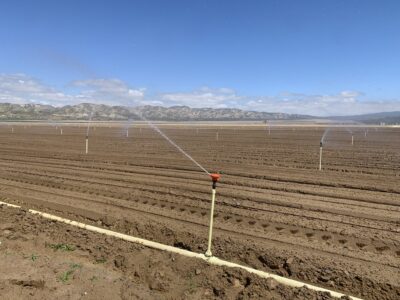California
Have We Begun the Third Age of Climate Law?
Some thoughts for Environmental History Week.
An international agreement in 1992 committed the world’s nations to addressing climate change but contained few specifics. The US ratified that agreement, but there was little concrete action here through the end of the 20th Century. As this century began, things looked optimistic, with both presidential candidates favoring reductions in carbon emissions. Promptly after taking …
Continue reading “Have We Begun the Third Age of Climate Law?”
CONTINUE READINGHow to Get to Zero Emissions at the Ports
A new report by UCLA and UC Berkeley examines policy solutions to accelerate deployment of zero-emission cargo handling equipment at the Ports of Long Beach and Los Angeles.
The Ports of Los Angeles and Long Beach are well on their way toward electrification, but the road to zero emissions is a long one. This new report—A Heavy Lift: Policy Solutions to Accelerate Deployment of Zero-Emission Cargo Handling Equipment at the Ports of Long Beach and Los Angeles and Beyond—surveys the biggest obstacles to …
Continue reading “How to Get to Zero Emissions at the Ports”
CONTINUE READINGGetting to Implementation
The Status of Local Climate Action in California
This post is co-authored by CLEE Climate Policy Fellow, Hanna Payne In the arc of climate action, we are firmly in the era of implementation. As climate change accelerates, communities across the state are experiencing the effects of a changing climate. To avoid the worst of these impacts, it is critical that we rapidly implement …
Continue reading “Getting to Implementation”
CONTINUE READINGIt’s High Time to Ban “Monster Fracking” in California
Fracking consumes enormous amounts of water, pollutes aquifers & is contrary to our climate goals
Recently, the New York Times published an important and disturbing expose’ titled, “‘Monster Fracks’ Are Getting Far Bigger. And Far Thirstier.” The Times article focuses on the alarming intersection of three current environmental crises–water supply shortages, groundwater contamination, and excessive greenhouse gas emission levels–that threaten California and other states across the nation. Fracking (the shorthand …
Continue reading “It’s High Time to Ban “Monster Fracking” in California”
CONTINUE READINGLivestock Operations Are Responsible for Over Half of California’s Methane Emissions—Why Won’t CARB Regulate Them?
CARB will have the authority to regulate methane from livestock operations beginning in January but has not initiated rulemaking
At a recent California Air Resources Board (CARB) meeting, a staff member responded to a question about why CARB’s program for reducing emissions from transportation fuels incentivized the capture of methane from landfills so much less than the capture of methane from dairies: “Landfills have a different CI [carbon intensity] score because they are …
CONTINUE READINGCalifornia Climate Policy: A Preliminary Report Card
It’s a bit complicated, but California definitely has made substantial progress.
We all know that California’s climate policies have led the nation. But how well have these policies actually worked? That’s not as easy to answer as you might think. You have to do some digging to come up with the numbers, and their meaning isn’t always completely clear. If you compare California with the country …
Continue reading “California Climate Policy: A Preliminary Report Card”
CONTINUE READINGGov. Newsom Goes to China to Talk Climate
Here’s what Newsom will see, say, and do on his China trip. He should also be listening for what California can learn from China.
We’re learning more about what Gov. Gavin Newsom will see, say, and do on his trip to China. All told, Newsom is slated to visit 6 cities in 5 provinces, including Guangdong, Jiangsu, and Shanghai—where he’s signing a new climate agreement. He plans to meet with representatives from the Chinese Ministry of Ecology and the …
Continue reading “Gov. Newsom Goes to China to Talk Climate”
CONTINUE READINGRecharge net metering (ReNeM) provides win-win-win for groundwater agency, landowners, & sustainable groundwater management
Nature Water publication showcases the economics of a novel groundwater recharge incentive structure
By Molly Bruce, Luke Sherman, Ellen Bruno, Andrew T. Fisher, & Michael Kiparsky An insidious issue has been growing along the Central Coast and throughout the state of California for decades: groundwater overdraft. In response to this growing threat and 2014 legislation designed to put an end to chronic overdraft, many basins have identified managed …
CONTINUE READINGWhat’s New About Income-Graduated Fixed Charges?
California is in the process of making income-graduated fixed rates a part of ratepayers’ electric bills. This is the second post in a series that follows that proceeding.
California’s new income-graduated fixed charge (IGFC) policy makes two major moves. The IGFC 1) unbundles costs from volumetric rates and shifts a portion of those costs into a separate fixed charge and 2) imposes the fixed charge on the basis of income. The IGFC has been described as unprecedented—but just what is new about this …
Continue reading “What’s New About Income-Graduated Fixed Charges?”
CONTINUE READINGOne More Key Groundwater Bill Just Became Law
Gov. Newsom signs AB 779, which addresses inequities in California’s complicated groundwater adjudication process.
Earlier this week the San Francisco Chronicle declared that California’s legislative session would close with just a single bill addressing injustices in the state’s water rights system. Now you can add one more to the list. Gov. Newsom signed Assembly Bill 779 into law this week. It’s an important step to reforming the state’s murky—often …
Continue reading “One More Key Groundwater Bill Just Became Law”
CONTINUE READING




